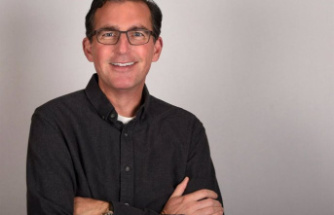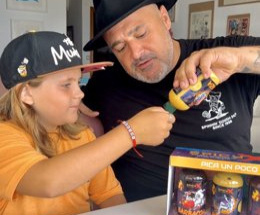There’s a moment in a video conversation between Unilever CEO Paul Polman and his son, Sebastian, when the son all but dismissively refers to his father’s early days as a milkman in the Netherlands.
The father’s response is swift and firm. The job of CEO and that of the milkman are of “equal responsibility,” he admonishes. “A lot of people depend on you,” he says of his days in dairy delivery. During the same conversation Polman said this: “It’s not important to be CEO. It’s important to be a human being.”
Since taking over the top job at the Anglo-Dutch food and personal care empire — Hellmann’s mayonnaise, Dove soap, Magnum ice cream, etc. — in 2009, Polman has stood out as the unconventional chief executive. His Twitter feed hews more to big picture themes — business as a force for good; creating transformational change; sustainability — than profit and loss statements.
Read more:
Kraft Heinz withdraws $143-billion bid to buy Unilever
Unilever rejects Kraft Heinz takeover bid, talks ongoing
His directorship in Focusing Capital on the Long Term, along with Canada’s Mark Wiseman, and his refreshing directive to no longer issue quarterly earnings guidance have been the topic of this column previously. “Business,” Polman has said, “needs a new relationship with society.” His advocacy on climate change issues is perhaps unparalleled in the club of global chief executives.
For all of the above reasons, the $143-billion (U.S.) takeover bid for Unilever by Kraft Heinz seemed an unlikely easy pairing. Kraft Heinz, we all recall, is controlled by 3G Capital, the Brazilian buccaneers unfavourably viewed by Leamington, Ont., when Heinz shuttered its historic ketchup operation there, putting hundreds out of work. Jorge Lemann, the Swiss-based Brazilian commonly referred to as Brazil’s richest entrepreneur, is usually seen as the face of 3G. But it has been a long-lived three-way partnership with Marcel Telles and Carlos Sicupira dating back to the trio’s banking days in the 1970s when they honed their talents for takeovers and acquisitions and, ultimately, Brazil’s first hostile takeover.
Lemann’s talent, according to the takeover king himself, lies in putting teams of people together. “I’m not a financial genius,” the one-time tennis professional said in an interview. “My mathematics are really poor.” The trio became students of Sam Walton’s laser focus on costs first at Walmart and drew huge headlines in 2010 in their successful leveraged buyout of Burger King. By 2013 they had the backing of Warren Buffett for their takeover of H.J. Heinz, a $23-billion deal.
Perhaps, viewed through the lens of a corporate culture clash, it shouldn’t be overly surprising that the ketchup conglomerate has backed away from its bid. “Unilever does not see the basis for any further discussions,” the targeted company said coolly.
But does this signal victory for Unilever and the Polman ethos?
It’s too early for that call.
What the scuppered deal has done is peel back the layers on two distinctly different approaches to governance.
In this, Unilever’s history is of deep importance, tracing as it does its history back to Victorian England. Canadians likely cannot cite the story of William Hesketh Lever, but the Victorian battle against germs and nasty hygiene and stricken children made Lever a hero, first with his creation of Sunlight Soap and, more significantly, the creation of Lifebuoy Royal Disinfectant Soap, which included germ-killing carbolic acid in its formulation. Lifebuoy was an early globalized success. (Lever Brothers merged with margarine makers Van den Berghs in 1930 to become Unilever.)
The Unilever history, its social-responsibility bent, is very much alive in Polman’s corporate world view.
3G doesn’t have a narrative history, but a bunch of story strands — Heinz, etc. — that are now lost to an over-arching attention to the bottom line.
It’s easy to see U.K. sensitivities here, particularly in the wake of Brexit and concerns of job loss.
The pressure will be on Polman now to convince Unilever shareholders that profitability and sustainability are indivisible, that business can be a champion for making the world a better place. That could sound Pollyannaish. Or it could gain wider acceptance as the only reasonable way forward.
jenwells@thestar.ca
The Toronto Star and thestar.com, each property of Toronto Star Newspapers Limited, One Yonge Street, 4th Floor, Toronto, ON, M5E 1E6. You can unsubscribe at any time. Please contact us or see our privacy policy for more information.
Our editors found this article on this site using Google and regenerated it for our readers.













